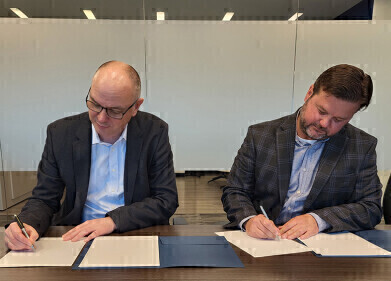Waste Management
EU’s ban on plastic packaging
Mar 21 2024
Symphony Environmental criticises the EU's ban on plastic packaging, labelling it as another instance of "plastiphobia." The proposed directive by the European Parliament aims to prohibit single-use plastics packaging for various items such as fresh produce, mini hotel toiletries, and fast-food containers. According to Michael Laurier, CEO of Symphony Environmental, a leading company in environmentally friendly packaging and polymer technology, this ban will not effectively address the issue. Instead, it will exacerbate environmental, economic, and health concerns.
Laurier argues that the current fear of plastics, termed "plastiphobia," stems from concerns about degradation. Traditional plastics can break down into microplastics, persisting in the environment for decades. However, modern plastic manufacturing technologies offer sustainable solutions to this problem without eliminating the use of plastic altogether. He emphasises that plastic products were initially developed in the late 1950s to replace paper and fabric alternatives, aiming to protect the environment.
Questioning the EU's reliance on paper and cardboard packaging as alternatives, Laurier highlights their environmental drawbacks. Studies indicate that paper and cardboard packaging generate significantly more air and water pollutants compared to plastic bags. Moreover, their bulkier nature leads to higher transportation costs and pollution levels. Laurier argues that paper is also less effective than plastic in protecting food from contamination, particularly when exposed to moisture.
Contrary to popular belief, Laurier contends that the plastics industry has continuously adapted its packaging products to meet environmental standards. He cites advancements such as d2w masterbatch technology, which facilitates the rapid conversion of plastic into biodegradable materials at the end of its useful life. This process occurs anywhere on the planet with oxygen availability, resulting in complete biodegradation without toxic byproducts or microplastics.
In Laurier's view, the EU should prioritise plastic as the preferred packaging material due to its ability to safeguard food and maintain product integrity throughout the supply chain. He urges policymakers to embrace sustainable innovations in plastic manufacturing to address the real environmental concerns associated with plastic waste.
Events
IWA World Water Congress & Exhibition
Aug 11 2024 Toronto, Canada
Aug 25 2024 Stockholm, Sweden and online
Sep 03 2024 Mexico City, Mexico
Sep 03 2024 Mexico City, Mexico
Sep 03 2024 San Diego, CA, USA













